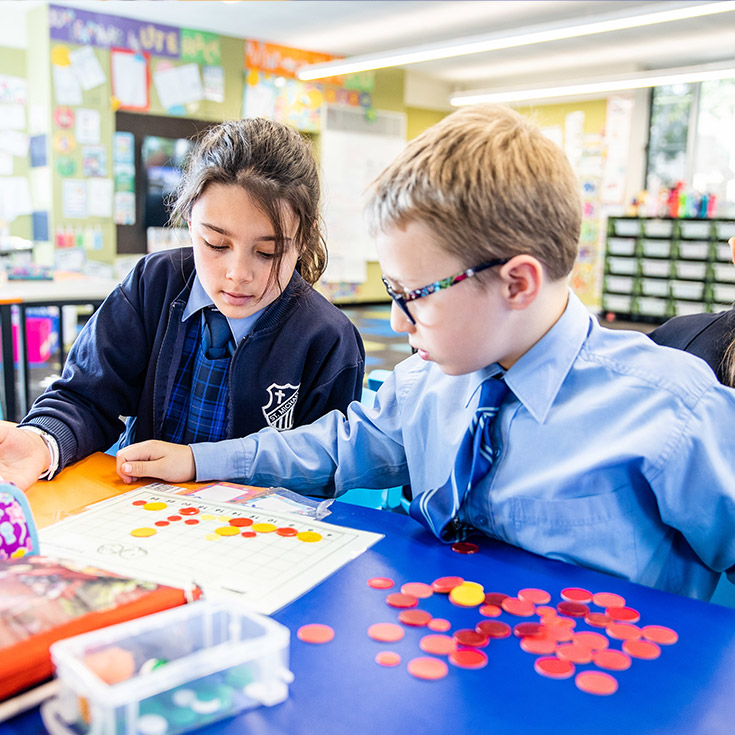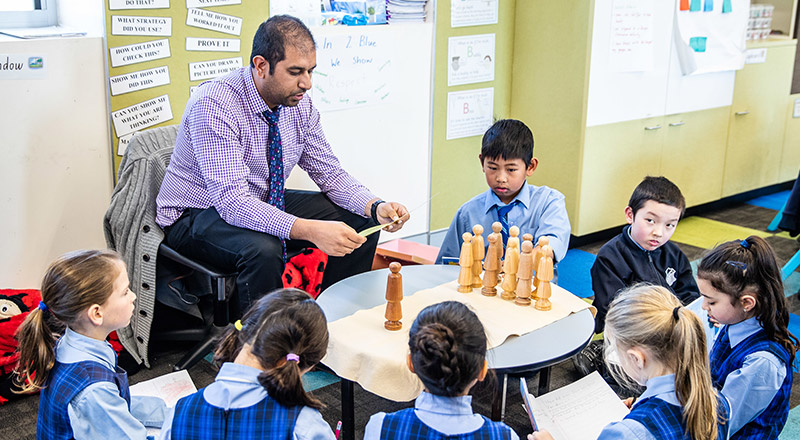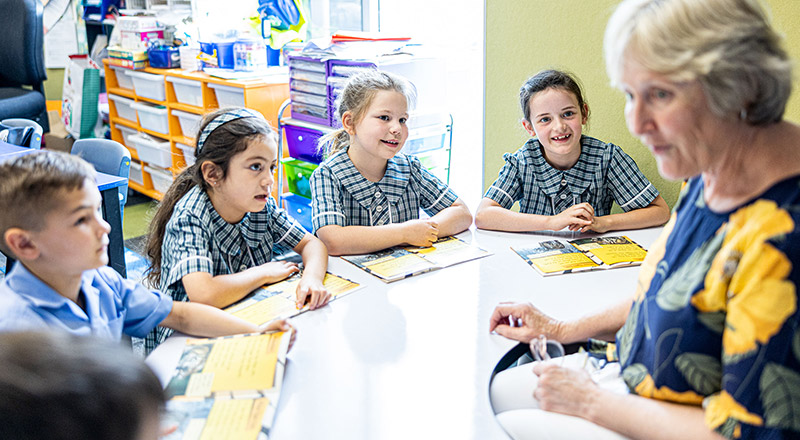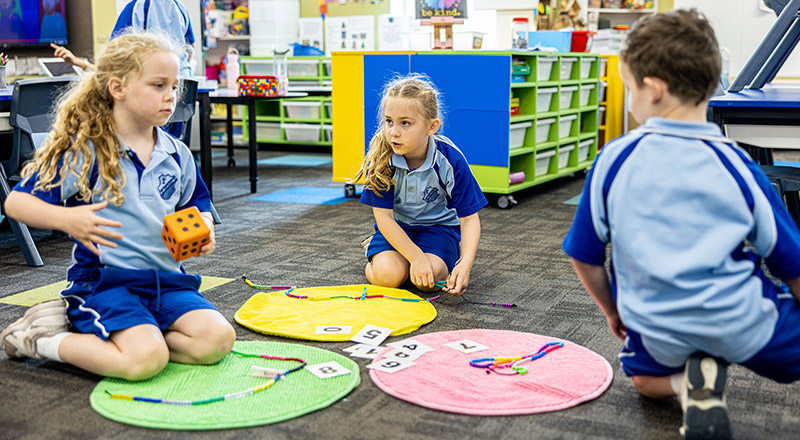Educating for the future
The learning journey at St Michael's honours the developmental stages in a student’s life. Based on leading educational research and the best of today’s technologies, we prepare students for the future by teaching them how to think critically and creatively, how to communicate effectively and how to lead and work both independently and collaboratively.
Educating for the future

The key learning areas
We follow the NSW Education Standards Authority (NESA) approved curriculum in the key learning areas of:
Religious Education
As a Catholic school we also have a strong religious dimension that runs through all the KLAs and is also formally recognised as the KLA of Religious Education.
St Michael's students take part in formal Religious Education every day, based on the new Catholic Schools Parramatta Diocese curriculum, Encountering Jesus. This curriculum invites all students to consider how the teachings of Jesus Christ can apply to their lives.
Religious Education

We use a holistic approach to education (focusing on spiritual, academic, emotional, social and physical development), so that students achieve their potential. Classroom activities focus on child-centred tasks and activity-based learning to maximise student engagement in the classroom. We aim for every student’s educational experience to be personalised, relevant and meaningful to them.
Technology is also an integral part of the curriculum. Our school is well equipped with the latest technology and e-Learning resources and developing students' digital skills is integrated into lessons across all areas of learning.
As the building blocks for all learning, we have a strong focus on Literacy and Numeracy throughout our learning and teaching programs.

Literacy
Literacy at St Michael's is an exciting and stimulating time. It is incorporated into the school timetable for a 2 hour literacy block/session. The daily literacy sessions include opportunities for the students to engage in talking, listening, reading and writing activities in a series of whole class, small group, pair and individual experiences.
Students are exposed to a variety of literature through the forms of spoken, print, visual, multimedia and digital texts.

Numeracy
At St Michael’s we focus on making real world connections between Mathematics and students’ every day lives. Students are given the opportunity to investigate, explore and manipulate both concrete materials and abstract ideas through rich tasks.
During the first four weeks of every year, every student participates in a one-on-one interview with their classroom teacher to determine the mathematical strengths and areas for development and to influence goal setting. These are continually reviewed throughout the year.
We offer a varied curriculum that is engaging and relevant!
Contact St Michael's TODAY to learn more about our innovative learning community.

